
Seeding Coral and Conserving Self: An interview with Dr Kath Whittey
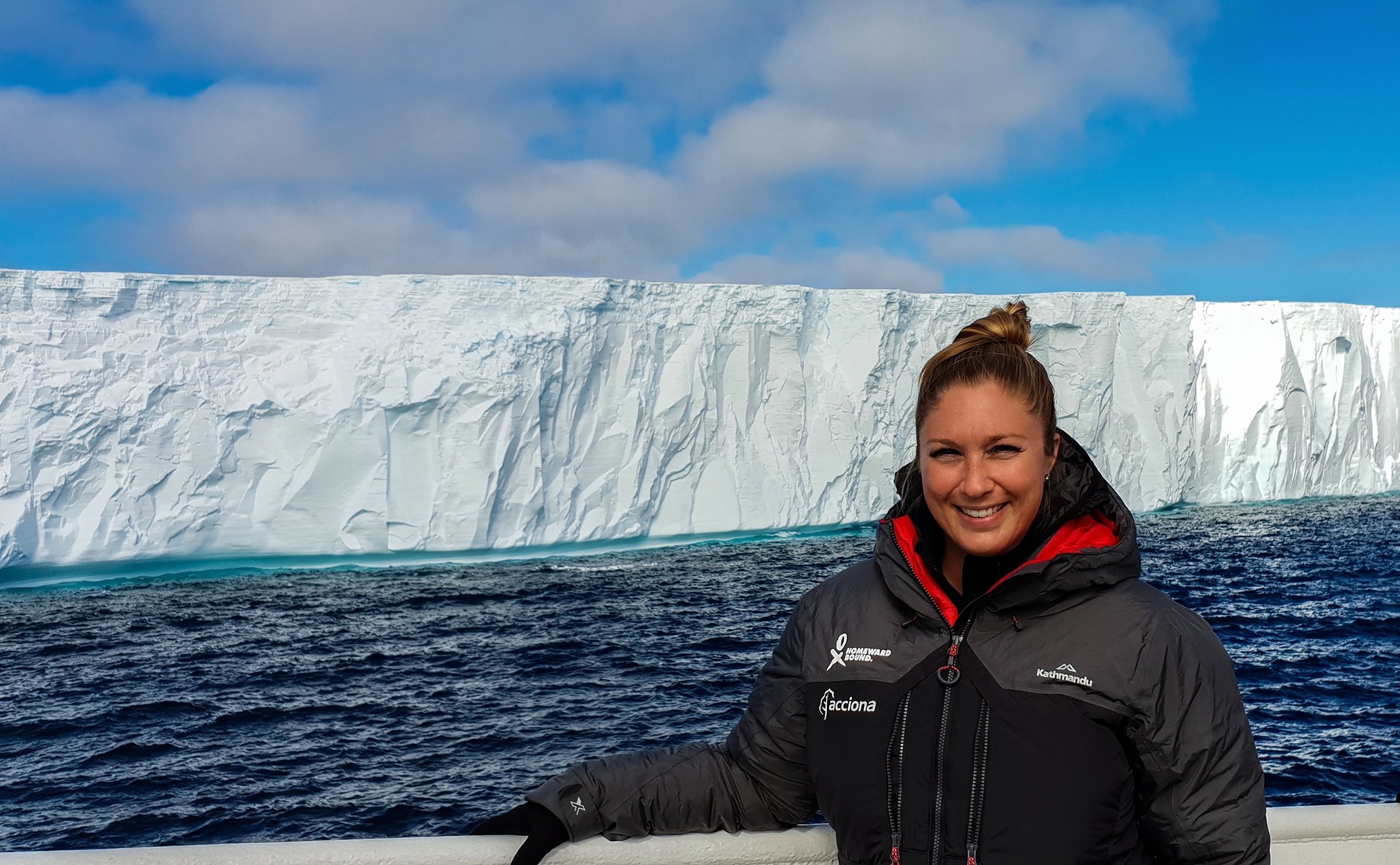
From childhood dreams to professional passion: Meet Australia’s Dr. Steph Gardner

Coral Conservation and the Importance of Community: An Interview with PhD student Aliyah Griffith

Parrotfish Proving Pelagic Protection
One of the hardest things about studying the ocean is that it is fluid (yes, that was a joke). But what I mean is that the only real boundaries are land. I would argue that our “blue planet” has more cracks and creavaces for marine life to hide than land. We can predict general areas where certain species should be, but that does not always mean we will find our target material.
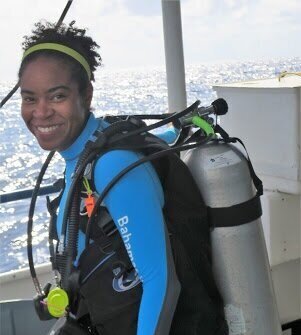
Life in The Bahamas: An interview with Marine Scientist Dr Krista Danielle Sherman
Crystal clear turquoise waters encompass The Bahamas and support a wealth of marine habitats, from coral reefs to mangroves and seagrasses. Home to the third largest coral reef in the world, the marine environment is bustling with exotic life. Meet Dr Krista Danielle Sherman, the first female Bahamian scientist to achieve her PhD within the Marine Sciences, who works tirelessly to ensure these intricate ecosystems remain pristine for years to come.

Tales of a Coral Aqauarist
A few years and career moves later, I find myself as an aquarist at the New York Aquarium (NYA). For the first time, I can confidently tell people that my job doesn’t feel like “a job”, which is something I have been wanting to find for a very long time. At NYA, I am one of the aquarist who is primarily in charge of the Conservation Hall galleries.
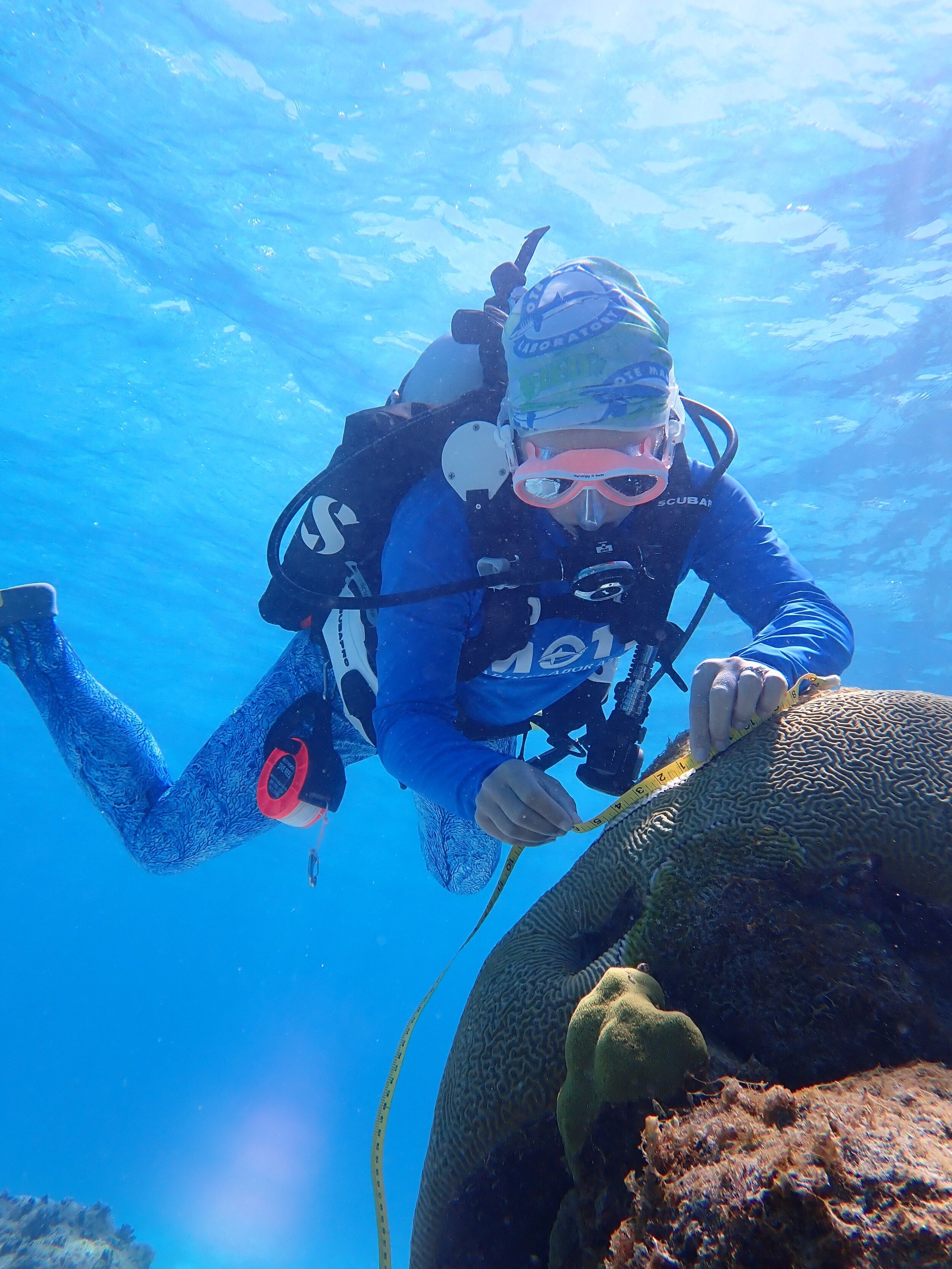
Climate Change, Disease and Sick Corals
‘We have to fight now to preserve what we have left’, says Dr Erinn Muller, a Senior Scientist at Mote Marine Laboratory and Aquarium. Erinn is also the coral Health and Disease Program Manger and an avid SCUBA diver from the U.S.A. She has an extensive background conducting research on coral health, disease and restoration from around the globe, including Florida, Indonesia and Saudi Arabia with a research focus on what makes corals sick and why some corals are more resilient to threats in comparison to others.
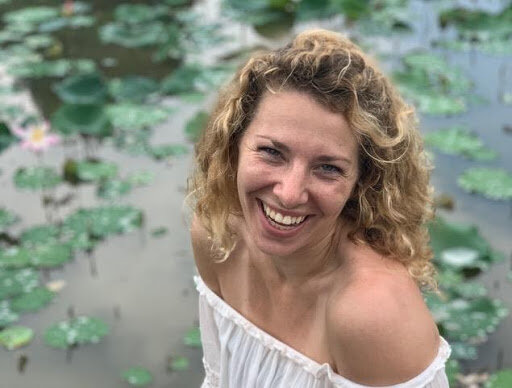
Not your stereotypical white coat lab work – Meet Coral Biologist Megan Clampitt
Stereotypes. Since the 1950s research has exposed the way students depict a scientist. White lab coats, eccentric men, wild hair and extravagant experiments all epitomise the stereotypical ‘mad scientist’ portrayed by the media. Although gender stereotypes may be on the decline, understanding the role of a modern scientist is important. Firstly, not all lab work requires a white coat and a crazy experiment!
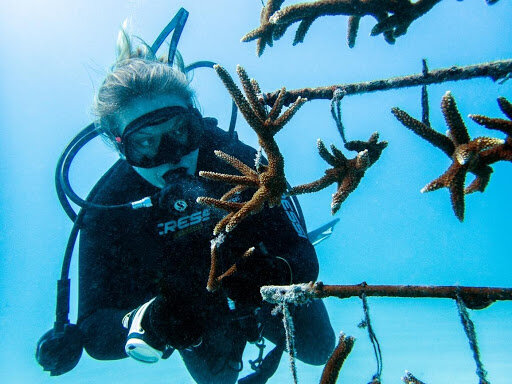
From Coastlines to Coral
Like many of the extraordinary women featured on this site, I fell in love with the ocean early on and fell hard. Declaring myself a future marine biologist by the time I was about 9 years old, I spent summers exploring the barnacle-ridden rocky tidal pools at Wingaersheek Beach in my home state of Massachusetts or catch-and-releasing crabs and invertebrates that were unfortunate enough to pass by my grandparents’ dock in Chesapeake Bay. I was happiest when I was saltiest, and that hasn’t changed.
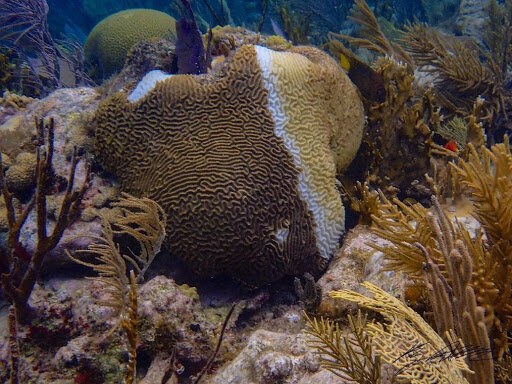
Stony Coral Tissue Loss Disease: What is it and How Can You Help?
The first time I saw stony coral tissue loss disease, I knew it could mean the end of these beautiful coral reefs that I grew up with, unless we act now!”
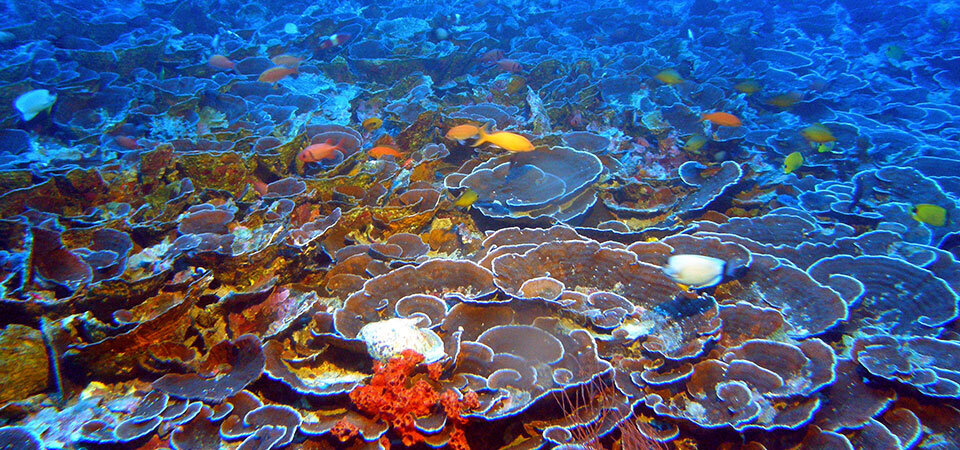
Buried Treasure: Mesophotic Coral Ecosystems (MCE’s) of the Hawaiian Archipelago
The Twilight Zone was not just a hit TV series by Rod Serling. But the counterpart which shares its name, “Coral Reef Twilight Zone”, captivates audiences just as much.
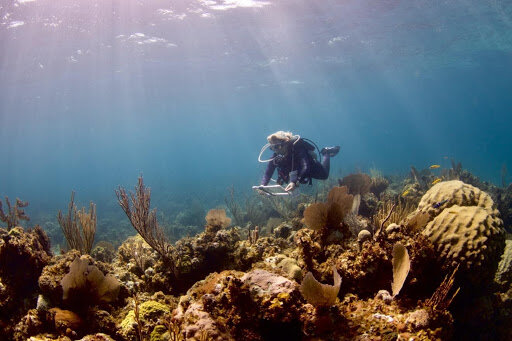
The Reef Rescue Network: Restoring Life, Growing Opportunity.
I became aware of threats against the ocean as soon as I started scuba diving, whether it was seeing coral bleaching during a dive or discarded fishing nets covering coral reefs, my eyes were now open to what most will never see. The threats to our ocean are mostly hidden to humans and this is why it has been so devastating, and little has been done to stop it.
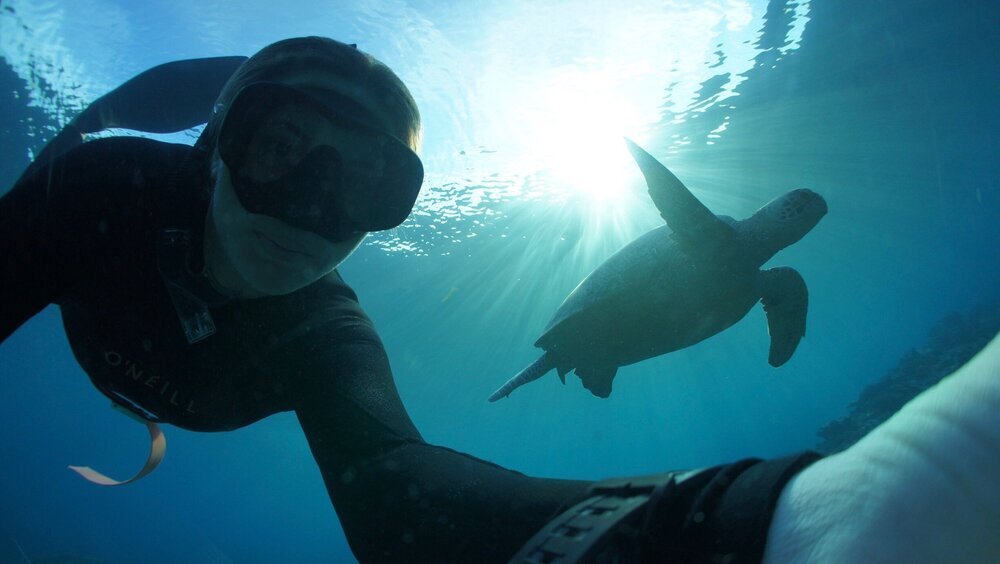
"Down Under"...Water: Jacinta Shackleton and Sea Turtles of the Great Barrier Reef
Jacinta Shackleton is a marine biologist and educator at Lady Elliot Island, located right on the Great Barrier Reef. You might recognize her name from her stunning work filming and photographing marine animals. Most notably, she is 1/~50 people to have seen and filmed an Ornate Eagle Ray.
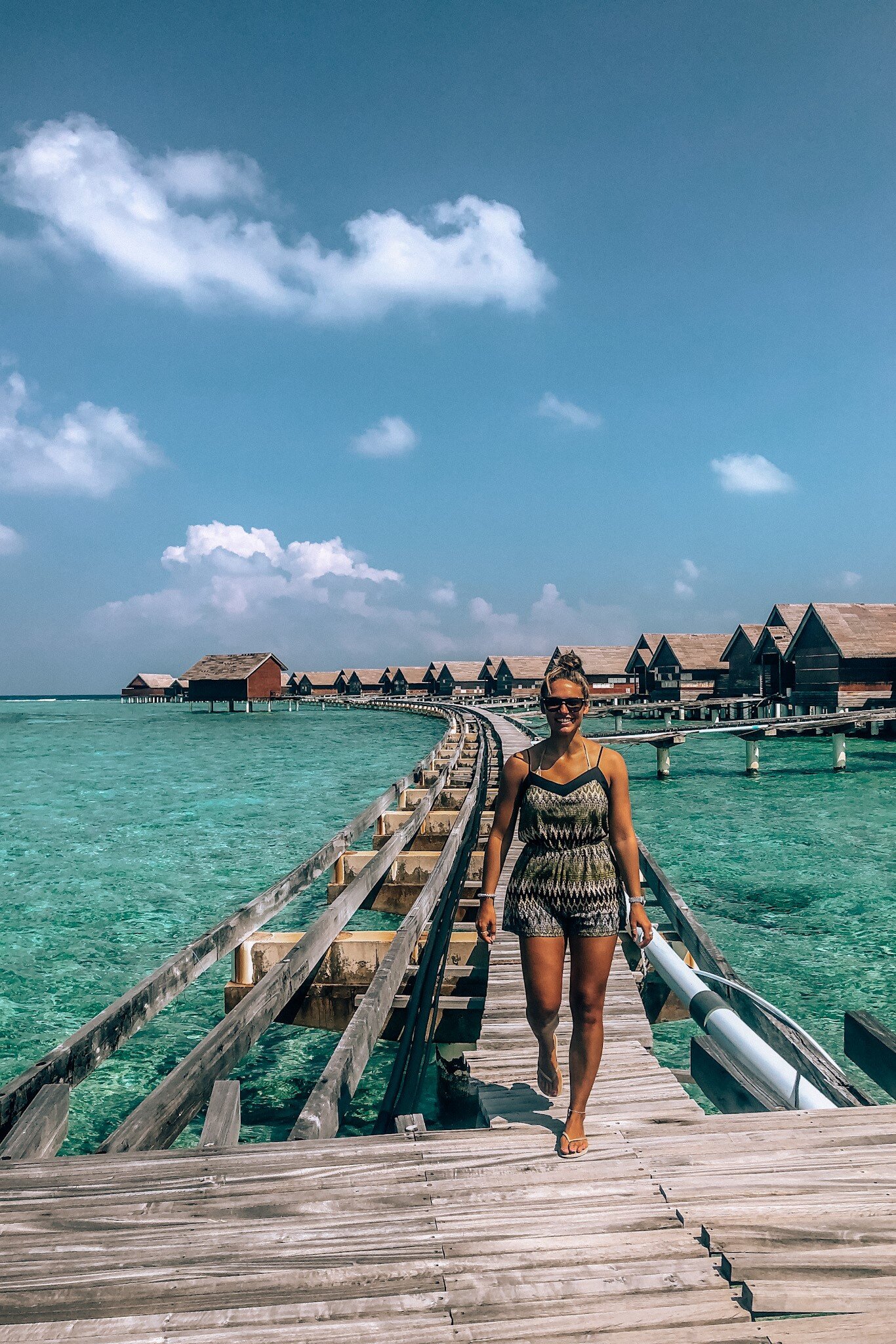
Travelling the Tropics
Coral reefs, the cities beneath the waves only cover less than 1% of the Earth’s surface but are home to 25% of all known marine life. They provide us with food, protection, jobs and medicine, yet we destroy, damage and degrade these intricate ecosystems mercilessly. We have now decimated 50% of coral reefs worldwide. At this rate, they could all be destroyed come the end of the decade
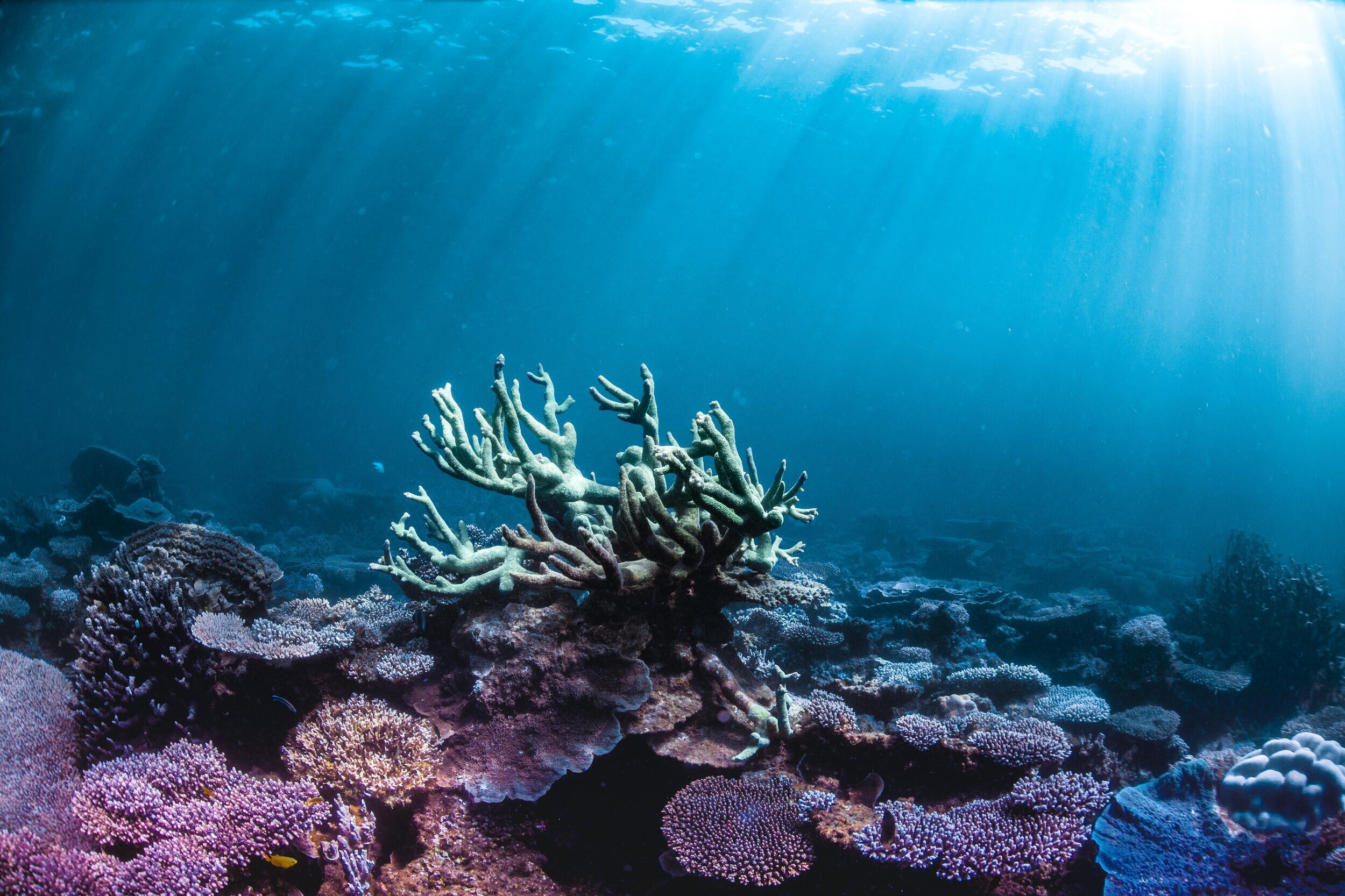
The Unintended Impacts of Tourism on Coral Reefs
Due to the safety precautions put in place to protect communities from the COVID 19 outbreak, there has recently been a collapse of the tourism industry. I thought this would be an excellent opportunity to reflect on the impact that tourism has on coral reefs.
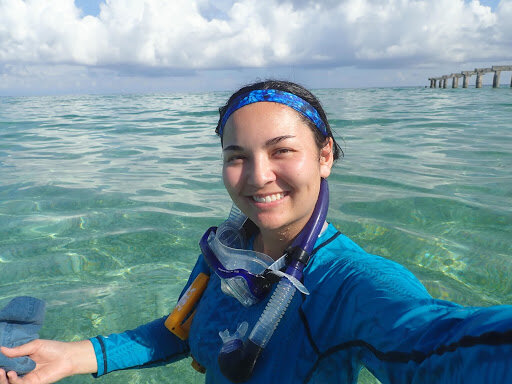
An Interview with Ariel Pezner: Biological Oceanographer
Meet Ariel Pezner, a third year PhD student at Scripps Institution of Oceanography (SIO) at the University of California San Diego whom is a biological oceanographer.
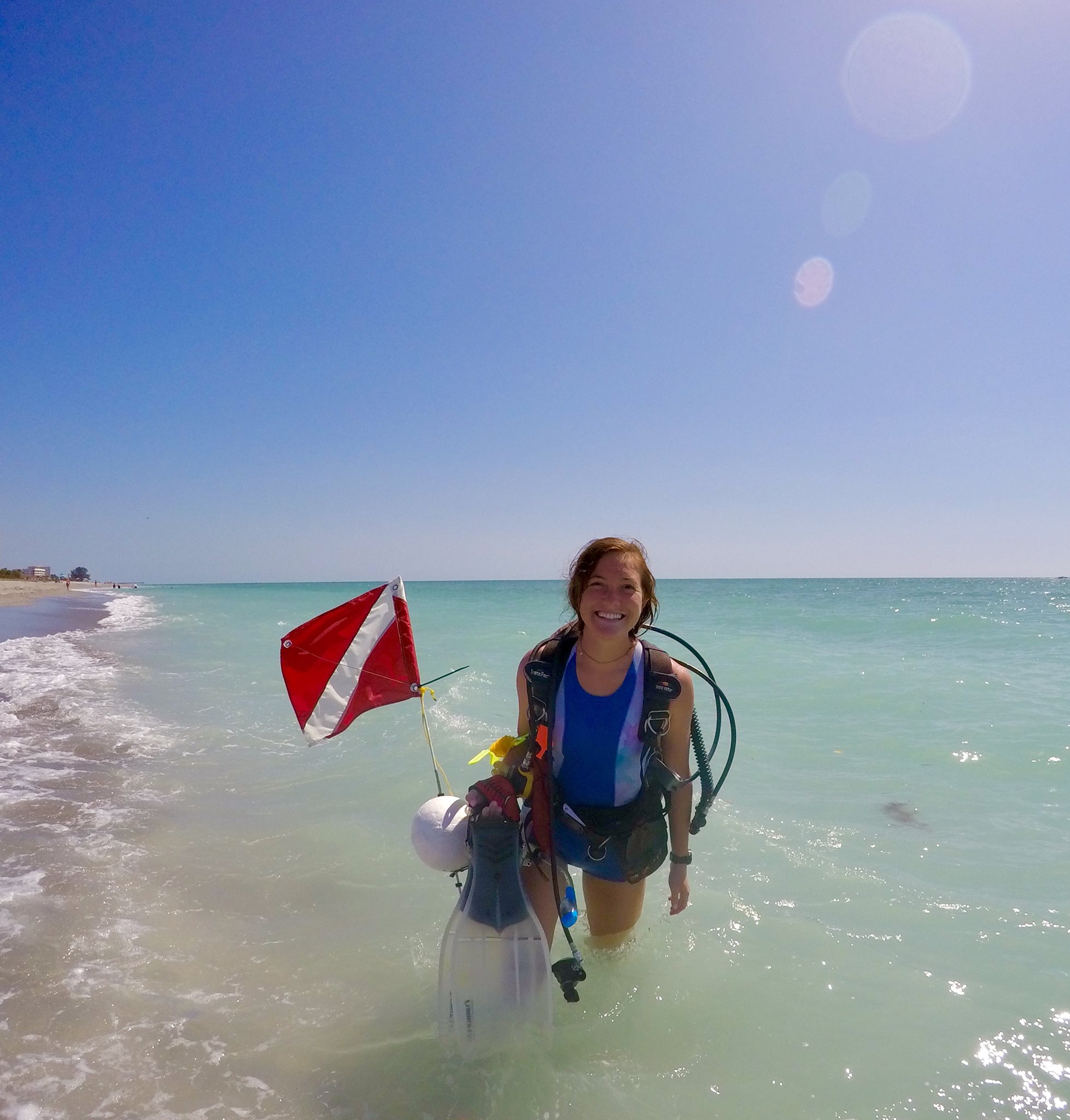
The Coral Microbiome: An Interview With Nicole Miller
The coral microbiome is still little understood. Nicole’s research aims to help us understand if we can utilize the coral microbiome to protect species from global and local stressors. Nicole also shares her advice for early career scientists and plans for the future.

Gen Bergemann: An Ocean Ambassador
Finding your feet in the marine science world can be confusing, challenging and sometimes daunting, Gen Bergemann talks us through her experiences in study, volunteering and finding her feet.
